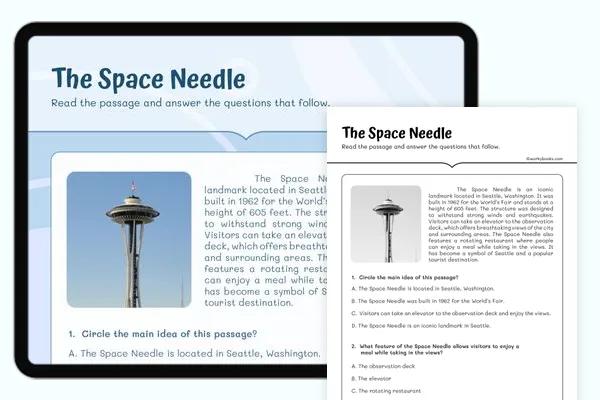Climate Change and the Great Barrier Reef — Passage
Climate change is having a big impact on the Great Barrier Reef. As the Earth gets warmer, so do the oceans. Corals like to live in water that's not too hot or too cold. When the water gets too warm, it stresses the corals. This can make them sick or even die. Rising temperatures also cause the water to become more acidic, which makes it harder for corals to build their skeletons. Another problem is that warmer water often leads to stronger storms. These storms can damage the delicate coral structures. Climate change is also causing sea levels to rise, which can affect how much light reaches the corals. All these changes are happening faster than many marine animals can adapt, putting the whole reef ecosystem at risk.
What is the main way climate change affects the Great Barrier Reef?
By making the water too coldBy making the water too warmBy making the water too saltyBy making the water too shallowHow does warmer water affect corals?
It helps them grow fasterIt makes them change colorIt stresses them and can make them sick or dieIt makes them produce more foodWhat does acidic water do to corals?
It helps them build stronger skeletonsIt makes it harder for them to build skeletonsIt makes them grow largerIt helps them resist diseasesHow does climate change affect storms near the reef?
It makes storms weakerIt makes storms strongerIt stops storms from happeningIt makes storms last longerWhat problem does rising sea levels cause for corals?
It affects how much light reaches the coralsIt makes the water too deep for corals to surviveIt brings more food to the coralsIt protects corals from stormsAccording to the passage, why is the reef ecosystem at risk?
Because of overfishingBecause of pollution from citiesBecause changes are happening faster than animals can adaptBecause of underwater earthquakes



















